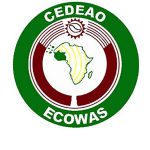South Korea’s political turmoil deepened on Friday, as the National Assembly impeached Acting President Han Duck-soo, who also serves as the country’s prime minister.

This move follows the impeachment of former President Yoon Suk Yeol earlier in the month after declaring martial law.
Han Duck-soo stepped into the acting president role on December 3 but faced criticism from opposition lawmakers, who accused him of obstructing the impeachment process against Yoon and hindering justice.
“I announce that Prime Minister Han Duck-soo’s impeachment motion has passed. Out of the 192 lawmakers who voted, 192 voted to impeach,” announced Speaker Woo Won-shik.
The ruling People’s Power Party (PPP) fiercely opposed the decision, with members staging protests in parliament and demanding the Speaker’s resignation.
Despite their objections, the motion proceeded, marking the first time an acting president has been impeached in South Korea, and the second impeachment of a head of state in just two weeks.
PPP leader, Kweon Seong-dong insisted that Han should continue managing state affairs, but Han stated he would honor the parliament’s decision while awaiting the Constitutional Court’s ruling on the matter.
Opposition lawmakers alleged that Han deliberately avoided a special investigation into those involved in the martial law declaration and blocked the appointment of three Constitutional Court judges, actions they argued violated his duty to uphold the law.
With Han removed, Finance Minister Choi Sang-mok has assumed the role of acting president.
Choi previously urged lawmakers to reconsider the impeachment motion, warning it could destabilize the economy during a time of national crisis.
“Our economy and people’s livelihoods, which are walking on thin ice, cannot bear the expansion of political uncertainty surrounding the acting authority,” Choi said during a press briefing.
The Constitutional Court, which currently operates with six out of nine seats filled, will now determine the validity of both Yoon’s and Han’s impeachments.
The opposition has criticized Han Duck-soo for refusing to approve the three judicial nominees, accusing him of undermining the judicial process.
Han defended his decision, emphasizing the need for bipartisan agreement in selecting judges.
Meanwhile, the court has begun its preliminary hearings on Yoon Suk Yeol’s impeachment, with his legal team present.
The political chaos has already taken a toll on South Korea’s economy, with the won plunging to its lowest level against the US dollar in nearly 16 years.
Authorities have also ramped up investigations into Yoon’s martial law declaration, including police raids on a presidential safe house and nearby surveillance footage collection.
As South Korea navigates this unprecedented crisis, the nation’s economic and political stability remains uncertain.
KanyiDaily recalls that former South Korean President, Yoon Suk Yeol was banned from leaving the country due to the failed martial law bid.




![Radiogad Claims VeryDarkMan Misused ₦180m NGO Funds On Luxury Cars And Women [Video] 5 Radiogad Claims VeryDarkMan Misused ₦180m NGO Funds On Luxury Cars And Women [Video]](https://media.kanyidaily.com/2024/12/28061416/Radiogad-accuses-VeryDarkMan-150x150.jpg)




!["Somebody Hacked Into My NGO Website And Stole N180 Million" - VeryDarkMan [Video] 19 "Somebody Hacked Into NGO Website And Stole N180 Million" - VeryDarkMan [Video]](https://media.kanyidaily.com/2024/12/27122728/VeryDarkMan-150x150.jpg)
![Alex Cross Welcomes First Child With His Wife [Photos] 21 Alex Cross Welcomes First Child With His Wife [Photos]](https://media.kanyidaily.com/2024/12/27111508/Alex-Cross-150x150.jpg)


